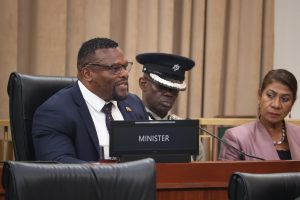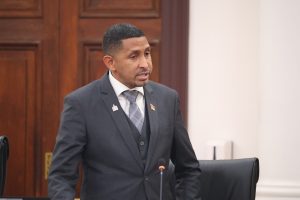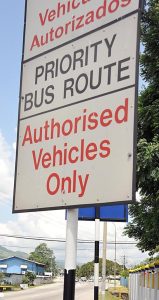By Sue-Ann Wayow
THE Brazilian variant of the Covid-19 virus is of concern in Trinidad and Tobago says Professor of Molecular Genetics and Virology at the University of the West Indies Professor Christine Carrington.
Speaking at the Ministry of Health virtual press conference on Monday, Prof Carrington said the Brazilian strain or P1 accounted for 38.2% of Covid-19 samples taken using whole genome sequencing.
This type of sequencing was different from PCR testing which is done to detect a virus, she added.
Prof Carrington said, “It is a technique that reveals the detailed structure of the virus’s genetic material and it is the only way to detect and fully characterise new variants and to unambiguously tie it to existing ones.”
Using a graph that showed information collected from 521 persons from August 1, 2020 to May 11, 2021, Carrington said 16 lineages were detected from the Sars Cov-2 virus.

The main ones of concern were the UK variant now identified by the WHO as the Alpha variant and P1 variant, she said.
She said in April, P1 was detected and accounted for about 38% of all the sequencing generated since December.

Carrington said the detection of the P1 variant has been increasing steadily from week to week especially from the epidemiological week 14 to week 19.
She emphasised, “Since the samples that we sequenced were not all randomly selected, the proportions of the different lineages shown are not necessarily representative of the general population.”
She added that the rapid increase was also seen in other countries and not unexpected.
Referring to Brazil, the country it was first detected and very prevalent, Prof Carrington said mortality rates among the elderly declined rapidly following the initiation of their vaccination programme using the AstraZeneca and Sinovac vaccines.
The Sinovac vaccine from China recently became the second Chinese created Covid-19 vaccine to receive WHO approval.

Referring to the Sinovac vaccine Chief Medical Officer Dr Roshan Parasram said, “The efficacy is about 50.6%. It was used quite a lot in Brazil and seems to have protection against the P1 variant. It is WHO approved. Our negotiations so far has focused on the Sinopharm vaccine and that particular company. We can’t rule out anything going forward in terms of the type of vaccine that we will use in Trinidad and Tobago.”
Prof Carrington again stressed that regardless of variants, becoming vaccinated gives the recipient an advantage over adverse effects of the virus, hospitalisation and even death.
See related stories:
![]()











